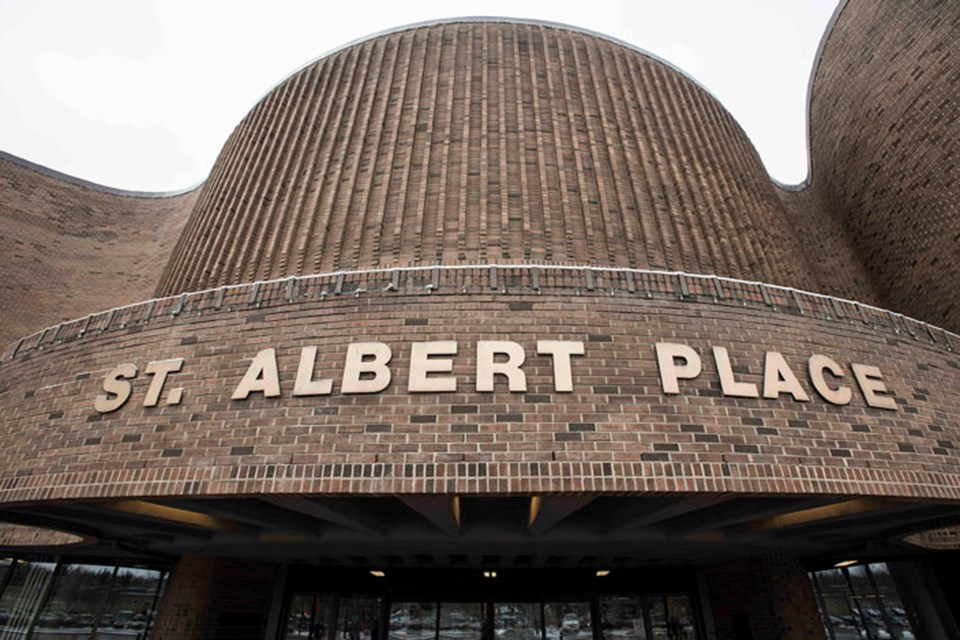The City of St. Albert will not be renewing a contract with its integrity commissioner when it expires next month, opting instead for a new process where city staff and council will determine whether an independent investigation against a councillor is necessary.
City council met Oct. 19 and voted 6-1 (Coun. Ken MacKay opposed) for two readings of a bylaw amendment making changes to the process for dealing with formal complaints against a council member under the council code of conduct. The changes then passed unanimously during third reading.
Essentially, this would mean the decision whether or not to spend money on an investigation would be determined by council and city legal staff.
“This year, we did have two complaints and I was egregiously offended that we did the investigations on them, because there was no disputed facts on these two cases, everything was public, there was no need to send it to an integrity commissioner,” said Mayor Cathy Heron. In a follow-up interview, Heron clarified the remarks that led to the investigations were public.
Since 2018, complaints about a councillor’s conduct have been sent to the city’s integrity commissioner, Shari-Anne Doolaege. Doolaege then decides how or whether to pursue those complaints. Upon further investigation, the commissioner will then make recommendations to council on the appropriate consequence or sanction against the councillor.
Doolaege received two formal complaints this year, according to an annual report. Both remain confidential. One was received in May and was investigated, with a report provided to council in-camera in July. The other was received in June. This complaint was also investigated and a report was provided to council in-camera in July.
Believing those complaints to be unfounded, city staff and councillors questioned whether it’s worth it for the city to be spending money for an investigation at all, especially during a time when the city is looking to cut back on spending.
“Then, of course, the integrity commissioner writes the report recommending sanctions and we didn’t even follow that,” Heron said.
The Gazette asked the city for details around those recommendations. According to the city’s code of conduct bylaw, the integrity commissioner’s reports to council “are strictly confidential and shall be considered by council in camera,” wrote David Leflar, director of legal and legislative services, in an email to the Gazette.
“The bylaw further specifies that such reports shall remain confidential unless Council ‘rises and reports on the matter’ making the information public. Since Council determined that no sanctions were appropriate in respect to either of the reports ... therefore the reports, including their recommendations, cannot be released publicly.”
The city spends $2,000 a month to keep the integrity commissioner on call in case there’s a need for an investigation. Since November 2019, the city has spent a total of $27,000 to retain those services. The contract also states the city cannot spend more than $40,000 on the commissioner’s services.
What’s the new process?
If there’s a complaint, it will now go to Leflar, the city’s chief legislative officer, who will seek out the other side of the story.
If the information was consistent and there was no dispute in both stories, then legal staff likely wouldn’t recommend a further investigation. Council then holds an in camera meeting to decide whether or not the city should hire a third party to investigate.
However, if there is a dispute between the stories, then the chief legislative officer would hire an investigator to look further into it.
“I felt that if we have a situation where there is no dispute on the facts, why not just quickly get it to council and let council make the determination?” Leflar said.
“If there is a dispute, and sometimes there will be, I have no problem with hiring a qualified investigator to look into it and make recommendations as to what you should find as facts.”
By law, council cannot make a substantive decision in a closed meeting, Leflar wrote in an email to the Gazette. So if sanctions are imposed on a council member, that would have to happen in a public meeting.
Coun. Natalie Joly said she was on the fence with her vote. With council having control over the decision to investigate, she said she worried it could damage relationships between councillors.
"I know how heated it can get when councillors misstep, and I don't want this council or the next council to be put in a position where they have to potentially risk relationships, because we are the decision-makers in these cases," Joly said.
Coming from a policing background, Coun. Ken MacKay said he felt uneasy over not retaining an independent commissioner for oversight.
"I still come from a background where I think there should be an independent review at all times in any occupation,” he said.
The new process will take effect on Nov. 6 once the city's contract with the integrity commissioner expires.




